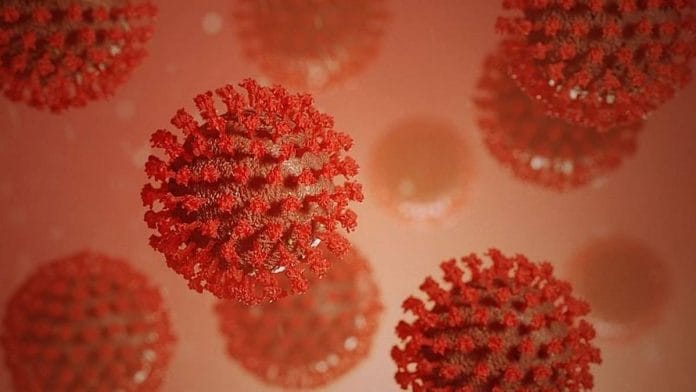New Delhi: The body’s immune response — driven by T cells — may be able to counter the new SARS-CoV-2 variant Omicron in Covid-recovered individuals, even if it is able to evade antibodies, a new study by researchers in the US has said.
A T cell is a type of white blood cell that plays a central role in the immune response that includes killing cells that have already been infected, and releasing proteins that act as signals to other cells to develop antibodies.
The study has been conducted by the US National Institute of Allergy and Infectious Diseases and Johns Hopkins University. It was posted on the preprint portal bioRxiv on 9 December and is yet to be peer-reviewed.
With a large number of reinfections (people who have had Covid before being infected with Omicron) being reported, as well as over 30 mutations in the Omicron’s spike protein (the protruding part of the coronavirus that allows the pathogen to enter the host cell), which most vaccines target, there is a concern that the variant may be capable of escaping the immune response generated by both prior infection or vaccination.
Now, data from the study suggests that virtually all individuals with existing anti-SARS-CoV-2 CD8+ T cell responses should recognise the Omicron variant. CD8+ T cells are those that are known to initiate the death of infected cells.
The researchers have noted that SARS-CoV-2 has not evolved extensive T-cell escape mutations at this time. The researchers admitted, however, that there were certain limitations to the study, such as a very small sample size.
Also read: India records 624 Covid deaths in 24 hours as Goa, Kerala, Chandigarh update data
No change in viral epitopes
The researchers studied blood samples from 30 people who had recovered from Covid infection in the US in April and May 2020.
They then identified the viral epitopes — or part of the virus that are targeted by CD8+ T-cells. The team found at least 52 different epitopes that are targeted in Covid-recovered individuals by CD8+ T-cells.
In about 50 mutations in Omicron that the team studied, they found no change in all but one epitope, which means most are unlikely to escape action by the CD8+ T cells. In one epitope, they found a single amino acid change in the spike protein.
Small sample size, only infected individuals
The team acknowledged a number of limitations to their study. The results, they said, are based on a relatively small sample size of individuals who were all from the US.
The team only analysed T-cell responses in previously infected individuals, but not in those who had been vaccinated.
It is thus possible that the T-cell responses in those who have received vaccines, but have not been previously infected, are limited.
However, the team said work examining T-cell responses from vaccinated people in the past has demonstrated strong T-cell responses, suggesting that similar trends should be seen in this population as well.
(Edited by Poulomi Banerjee)
Also read: Booster shot of Pfizer vaccine can cut mortality from Delta variant by 90%, says Israeli study






